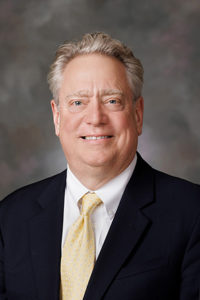Potential third term for legislators clears first round
A proposal that would extend term limits for members of the Nebraska Legislature was amended and advanced to select file April 25.

LR19CA, introduced by Norfolk Sen. Robert Dover, would extend the current limit of two consecutive four-year terms for state senators to three consecutive four-year terms.
As introduced, the proposal would be placed on the November 2026 general election ballot. If approved by voters, the measure would take effect in 2028.
An Executive Board amendment, adopted 30-7, instead would move the ballot question to a special election that would coincide with the May 2026 primary election. Under the Nebraska Constitution, the Legislature may call a special state election with approval of four-fifths of elected members, or 40 votes.
Dover said the state’s unicameral system means that term-limited senators don’t have an option to continue serving their constituents in a new role.
“In all other states in the U.S. there are two chambers so that when a representative is termed out, they go to the other chamber and serve — taking their eight years of experience with them to continue to serve their state,” he said.
Speaker John Arch of La Vista supported the measure, saying the current two-term limit creates a host of challenges, including requiring relatively inexperienced members to take on leadership roles while they are still learning how to navigate the Legislature.
For example, he said, in the 2025 session, nearly one-third of current senators are in their first year of service and 11 of 15 committee chairpersons are new to their roles.
New senators “desperately” need the perspective and institutional knowledge of experienced members in order to be effective and to create quality legislation, Arch said.
“I recognize that there’s also downsides to offering another term … but on the whole, I think it’s the right thing for the Legislature,” he said.
Central City Sen. Loren Lippincott offered an amendment that would place a lifetime limit of three terms on members of the Legislature. Service prior to Jan. 1, 2023, would not be counted for purposes of calculating terms served under the amendment.
Lippincott said 12 years is a reasonable amount of time for a state senator to serve and that a lifetime cap would guard against the kind of “career politicians” that Nebraskans voted against when they enacted term limits nearly 20 years ago.
“This change … is the best way, in my opinion, to balance experienced leadership, democratic renewal and fairness in our Unicameral Legislature,” he said.
Sen. Merv Riepe of Ralston opposed Lippincott’s amendment, saying it would hinder the ability of young people to return to the Capitol and serve again after taking a break to raise families or focus on careers.
The Lippincott amendment failed on a 13-22 vote. Twenty-five votes were needed.
Following the 30-7 adoption of the committee amendment, senators voted 32-7 to advance LR19CA to the second round of debate.


